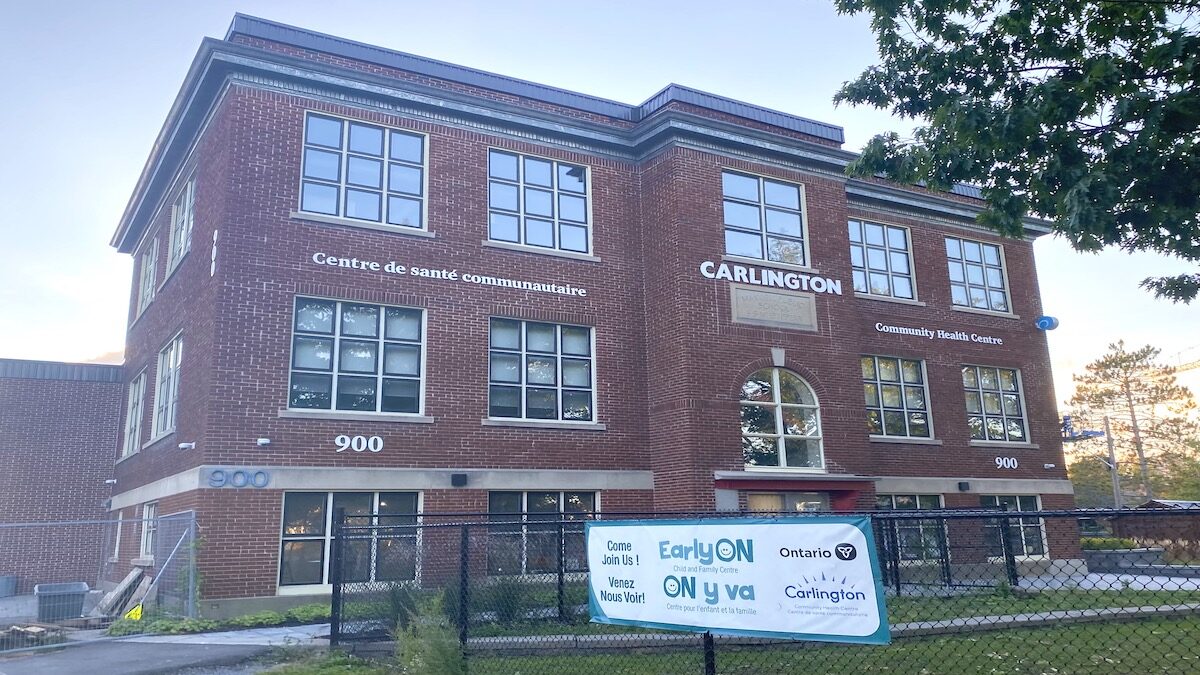Experts say that a surge in calls for service under the Mental Health Act in Ontario during the pandemic is a clear sign that communities need more support.
The Mental Health Act allows police to apprehend individuals for psychiatric assessment by a physician. First enacted in 1967, the act has undergone several amendments, the most recent in 2015. Those most affected by the act have been met with many challenges that have intensified in the pandemic.
Data from Statistics Canada, during the year leading up to the pandemic in April 2019 to March 2020, shows the total number of reported calls to the Ontario Provincial Police under the MHA was 8,988. In comparison, during the first complete year of the pandemic in April 2020 to March 2021, the total number was 12,215, a 36 per cent increase.
Jill McDougall, a registered nurse and mental-health services manager at the Carlington Community Health Centre, says she believes this increase can be attributed to people feeling “more anxious and afraid than ever” when leaving the house, gathering in social groups and making decisions about their health. She adds this worsens the impact of reduced provincial mental-health support during the pandemic, likely leading to the significant rise in MHA calls.
“There’s been a significant and widespread reduction in services available for people with mental illnesses like addiction,” McDougall said, adding that calls for service under the Mental Health Act are usually a last resort because traditional mental-health resources are inaccessible.
“Even 18 months into the pandemic, in-person services are still lacking,” she said. “Clients really value face-to-face interaction. I think that’s a huge piece that needs to come back.”
Aleigha Cheung, who is studying social work and disability studies at Carleton University, says that virtual interactions with mental-health services are very different from in-person interactions. She feels as though her experience accessing services before the pandemic was much easier, and not just because these services were more broadly available.
“Seeking mental-health services feels a lot more daunting when you’re searching online and sitting alone in your room," she said. "Having to physically go see someone to talk about your mental health makes a huge difference, and that was really lost when we were forced to move online.”
Locally, data from Statistics Canada, during the year leading up to the pandemic in April 2019 to March 2020, shows the number of reported calls to the Ottawa Police Service under the MHA was 1,988. Reported calls in Ottawa actually went down slightly during the first complete year of the pandemic in April 2020 to March 2021, with the total number being 1,951.
Notably, though, there were significant differences in recorded calls during specific months throughout the pandemic, which coincided with landmark moments in Ottawa’s fight against COVID-19 and Ontario-wide restrictions.
For example, in January 2020, there were 138 calls, compared with 189 in January 2021. This 37 per cent difference coincides with a province-wide stay-at-home order and the declaration of a second state of emergency. Similarly, between March 2020 and March 2021 there was a 27 per cent increase in recorded calls, marking a full calendar year since the beginning of the COVID-19 pandemic in Ottawa.
Meanwhile, the number of recorded calls in September 2020 was actually 28 per cent lower than in September 2019, which coincides with the return to in-person learning for many Ottawa schools, and a gradual return to in-person services across the province.
Addressing mental-health care in communities
Many individuals in Ontario have begun to understand more about their mental health during the pandemic, says Alexandra Harris-Lowe, a program co-ordinator for Jack.org, an organization that empowers youth to learn and teach each other about mental health.
“An increased use of services has always been needed, but the pandemic has really brought certain things to light,” Harris-Lowe said. She adds that more conversation about self-care is important for mental health care.
“More funding for mental health is always something that is needed, specifically things like funding or having mental health as part of OHIP. Really making sure that your mental health is treated the same as your physical health through policy is something that needs to increase.”
McDougall adds that mental-health care, especially in the pandemic, is about more than just traditional mental health and crisis services. She says thinking about mental-health treatment through a community perspective can help fight the stigma and support those requiring help under the Mental Health Act.
“Recreation services where people can get out and have meaningful interactions, such as school and work programs, increase their quality of life and help them engage in treatment and recovery from their mental illness,” McDougall said. “I’m really hoping that the pandemic hasn’t squashed any movement forward.”
If you or someone you know requires immediate mental health services, call 9-1-1. Additionally, individuals can access mental health resources at Ottawa Public Health and the Ontario Ministry of Health.




